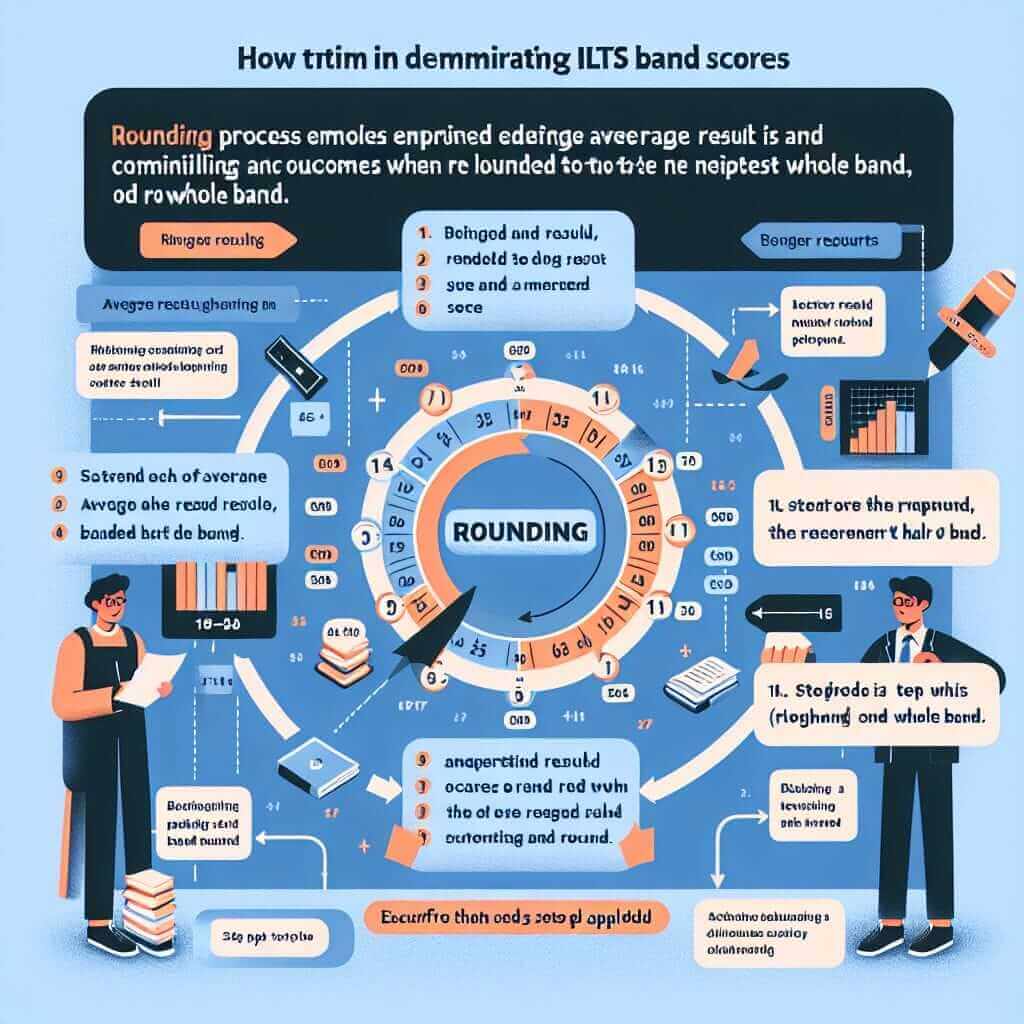As an IELTS instructor with over 20 years of experience, I often encounter students who are curious about the intricacies of IELTS scoring, particularly whether the band scores are rounded down. This article delves into the IELTS band score system, addressing the question of rounding down and providing clarity on how scores are calculated and awarded.
How are IELTS Scores Calculated?
Before addressing the question of rounding down, it’s essential to understand how IELTS scores are determined. The IELTS exam assesses your English language proficiency across four sections: Listening, Reading, Writing, and Speaking. Each section receives a band score on a scale of 0 to 9, with 9 being the highest level of proficiency.
Your overall band score is the average of your scores in all four sections. For instance, if you score 7 in Listening, 6.5 in Reading, 7 in Writing, and 7.5 in Speaking, your overall band score would be calculated as follows:
(7 + 6.5 + 7 + 7.5) / 4 = 7
Are IELTS Band Scores Rounded Down?
Now, let’s address the main query: Are IELTS scores rounded down?
The answer is no. IELTS scores are not automatically rounded down. Instead, the overall band score is rounded to the nearest half or whole band. Let’s illustrate with examples:
- Scenario 1: Your average score is 6.75. In this case, your overall band score would be rounded up to 7.
- Scenario 2: Your average score is 6.25. Here, your overall band score would be rounded down to 6.5.
- Scenario 3: Your average score is 6.125. This score would be rounded down to 6.

Implications for Test Takers
Understanding the rounding system is crucial, as it can influence your overall band score. If your target score is a 7, for example, aiming for at least a 6.75 average across all sections is essential.
Tips for Achieving Your Target Band Score
Here are some tips to help you achieve your desired IELTS score:
- Practice consistently: Regular practice across all four skills is key. Familiarize yourself with the test format, question types, and time constraints.
- Focus on accuracy and fluency: While both are important, prioritize accuracy, especially in grammar and vocabulary.
- Seek feedback: Obtain feedback from qualified IELTS instructors or language partners to identify areas for improvement.
- Develop strategic test-taking techniques: Learn time management strategies, effective note-taking methods, and approaches for different question types.
Conclusion
The IELTS band score calculation is not simply about rounding down; it involves a specific rounding system that considers the nearest half or whole band. By understanding this system and implementing effective preparation strategies, you can maximize your chances of achieving your target IELTS score. Remember, consistent effort and targeted practice are key to success in the IELTS exam.